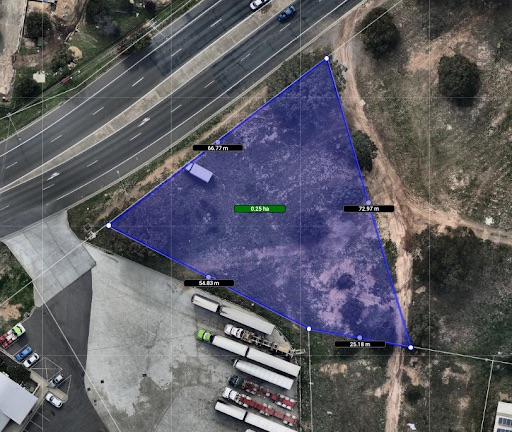Navigating the complexities of environmental project management requires a deep understanding of its challenges, including regulatory compliance, stakeholder engagement, and unforeseen environmental impacts. Discover how to turn environmental project management hurdles into stepping stones with our expert insights and strategies. This article is your go-to guide for overcoming the common obstacles in environmental project management, offering actionable advice and a comprehensive toolkit for project managers at all levels. Whether you’re seasoned or new to the environmental sector, enhance your approach and lead your projects to success with our proven tips and strategies.
Navigating the Complexities of Environmental Project Management
Environmental project management in Australia faces unique challenges, from diverse ecological systems to stringent regulatory environments. Effective project management in this field is not just about meeting project timelines and budgets; it’s about understanding and responding to the unique environmental, social, and regulatory factors that come into play.
- Understanding Local Ecologies and Biodiversity – Every environmental project in Australia must consider the unique local ecologies and biodiversity. Our team members are adept at conducting thorough environmental assessments, ensuring that our project plans are tailored to protect and preserve local ecosystems. This understanding is crucial for the project’s success and for maintaining ecological integrity.
- Engaging with Indigenous Communities – Engagement with Indigenous communities is a critical aspect of environmental project management in Australia. We prioritize respectful and meaningful engagement with local communities, understanding their connection to the land and incorporating their knowledge into our project planning and execution.
- Advanced Data Analysis and Modeling – Utilizing cutting-edge data analysis and modeling tools, we can predict environmental impacts and adjust our strategies accordingly. This approach helps in effective project management by providing a detailed forecast of potential environmental changes, allowing for more informed decision-making.
- Interdisciplinary Approach – Environmental project management requires an interdisciplinary approach. Our project team includes experts from various fields such as biology, geology, environmental science, and engineering, ensuring a well-rounded and comprehensive strategy for each project.
- Balancing Development and Conservation – A significant challenge in environmental project management is balancing development goals with conservation efforts. Our management strategies are designed to achieve this balance, ensuring that development objectives are met while conserving the natural environment.
- Utilizing Innovative Technologies – Innovation is key to navigating the complexities of environmental projects. We employ the latest technologies for environmental monitoring, data collection, and analysis, which enhances our ability to manage projects effectively and efficiently.
- Continuous Learning and Adaptation – The environmental sector is constantly evolving, and so are the challenges it faces. Our team is committed to continuous learning and adaptation, staying updated with the latest research, trends, and regulatory changes to ensure our project management approaches remain relevant and effective.
At iEnvironmental Australia, we prioritize effective strategies throughout the project lifecycle, from initial planning to final execution, to navigate these complexities successfully.
Mitigating Environmental Risks and Impacts
Key to managing projects in the environmental sector is the identification and mitigation of project risks. Our approach integrates comprehensive risk assessments into the project timeline, allowing for proactive management of potential issues. This focus ensures not only the successful outcome of the project but also the safeguarding of the environment. We employ a range of strategies and tools to ensure that our projects not only comply with regulatory standards but also contribute positively to the environment.
- Risk Identification and Analysis
- Early identification and thorough analysis of potential environmental risks are essential. Our team employs a systematic approach to identify risks at the outset, analyzing their potential impact and developing strategies to mitigate them.
- Early identification and thorough analysis of potential environmental risks are essential. Our team employs a systematic approach to identify risks at the outset, analyzing their potential impact and developing strategies to mitigate them.
- Developing Robust Environmental Management Plans
- Each project we undertake is guided by a robust Environmental Management Plan (EMP). These plans are comprehensive, covering all aspects of environmental risk and impact, and are tailored to the specific needs and challenges of each project.
- Implementing Proactive Measures
- Proactive measures are more effective than reactive ones. We focus on preventing environmental impacts before they occur, using predictive models and monitoring systems to foresee and mitigate potential risks.
- Regular Monitoring and Reporting
- Ongoing monitoring and reporting are critical for risk mitigation. Our teams conduct regular environmental monitoring, ensuring that any deviations from the expected outcomes are detected early and addressed promptly.
- Engaging Stakeholders in Risk Management
- Stakeholder engagement is key in risk management. We involve all relevant stakeholders, including local communities, in our risk management processes, ensuring transparency and building trust.
- Emergency Response Planning
- Despite all precautions, emergencies can occur. We develop comprehensive emergency response plans for each project, ensuring readiness to effectively manage unexpected environmental incidents.
- Training and Capacity Building
- Educating and training our team members in the latest environmental risk management techniques is a priority. This capacity building ensures that our team is well-equipped to identify, analyze, and mitigate environmental risks effectively.
Implementing Sustainable Practices for Project Success
Sustainability is at the core of every project we undertake. By integrating sustainable practices into our project planning, we not only comply with environmental standards but also add value to our clients and the community. This includes:
- Renewable Energy Utilization: Incorporating renewable energy sources like solar and wind power to minimize the environmental impact of our projects.
- Waste Reduction and Recycling: Implementing strategies for effective waste management, focusing on reducing, reusing, and recycling materials.
- Water Conservation: Employing advanced water conservation techniques to ensure efficient use and preservation of water resources.
- Sustainable Material Sourcing: Selecting eco-friendly and sustainable materials for project construction and implementation.
- Eco-friendly Transportation: Using environmentally friendly transportation options for personnel and material movement to reduce emissions.
- Green Infrastructure Integration: Incorporating green infrastructure elements, such as green roofs and permeable pavements, to enhance environmental benefits.
- Biodiversity Preservation: Actively working to preserve local biodiversity through careful project planning and execution.
- Sustainable Land Use Practices: Ensuring land use practices are sustainable and minimize ecological disruption.
Our project team, equipped with advanced project management software, ensures that sustainable practices are consistently applied throughout the project lifecycle.
Fostering Collaboration and Communication for Environmental Projects
Collaboration and communication are essential for the success of environmental projects.
- Stakeholder Engagement: Regularly engaging with all stakeholders, including local communities, clients, and regulatory bodies, to ensure alignment and understanding.
- Interdisciplinary Teamwork: Encouraging teamwork across various disciplines to foster innovative solutions and comprehensive project approaches.
- Transparent Communication: Maintaining open and transparent communication channels for all project aspects to ensure clarity and prevent misunderstandings.
- Feedback Mechanisms: Implementing effective feedback mechanisms to allow continuous improvement and adaptability in project execution.
- Cultural Sensitivity Training: Providing cultural sensitivity training to team members to ensure respectful interactions with diverse communities.
- Conflict Resolution Strategies: Employing conflict resolution strategies to address any disputes or disagreements that arise during project implementation.
- Regular Progress Updates: Providing regular updates on project progress to keep all parties informed and involved.
We believe in the power of a cohesive project team, where each member’s expertise is valued and utilized. Regular team meetings and clear communication channels ensure that everyone is on the same page, reducing the likelihood of scope creep and other common project management challenges. We also extend this collaborative approach to our stakeholders, ensuring their needs and concerns are addressed.
Ensuring Compliance and Adapting to Regulatory Changes
In the dynamic field of environmental consulting, staying abreast of regulatory changes is crucial. Our management strategies include:
Regulatory Monitoring: Continuously monitoring changes in environmental regulations to ensure compliance.

Legal Expertise Consultation: Consulting with legal experts to understand the implications of environmental laws and regulations.
Compliance Audits: Regularly conducting compliance audits to identify and rectify any potential compliance issues.
Training on Regulatory Changes: Providing ongoing training to team members on new regulations and compliance requirements.
Collaboration with Regulators: Working closely with regulatory bodies to ensure that projects meet all legal requirements.
Documentation and Record-Keeping: Maintaining thorough documentation and records as proof of compliance and for future reference.
Excellence in Environmental Project Management at iEnvironmental Australia
At iEnvironmental Australia, we strive to deliver excellence in environmental project management. Our commitment to risk management, sustainable practices, effective communication, and regulatory compliance ensures that every project we manage not only meets but exceeds expectations. We invite you to engage with our content, share your thoughts, and explore how our expertise in environmental project management can benefit your next project.


